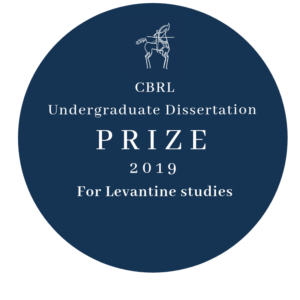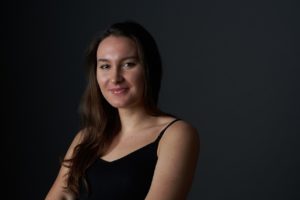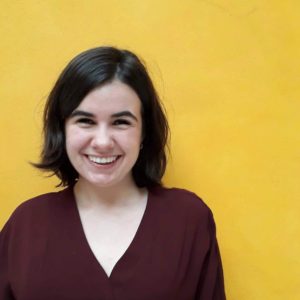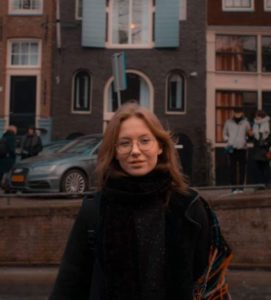We’re thrilled to announce the winners of CBRL’s 2019 prize for Best Undergraduate Dissertation in Levantine studies. The prize for the Contemporary Levantine Studies category, has been awarded to Nastia Van der Meer who graduated from the University of Warwick this summer with a degree in History and Politics. The prize for Levantine Archaeology or History has been jointly awarded to Marie Middleton who graduated from University College London with a degree in Archaeology and Anthropology, and Gabriela Szymanska who graduated from University of East Anglia with a degree in Archaeology, Anthropology and Art History.
Earlier this year CBRL invited UK based heads of departments and chairs of departmental examination boards to nominate one final year first-class dissertation in Levantine studies, ancient or contemporary.
The prize evaluating committee, made up of CBRL trustees, commented that the winning dissertations showcased highly original research supported by sophisticated theories. All three dissertations demonstrated a deep contextual understanding with clear and logical presentation of evidence.
Congratulations to our three winners!
‘My dissertation compares the non-violent resistance methods used by indigenous populations to resist settler colonial oppression in the contexts of Apartheid South Africa and modern-day Israel-Palestine. The dissertation examines and compares everyday, organised political, and socio-cultural resistance and builds on previous settler colonial theory. It incorporates the Foucauldian concept of ‘assemblage’ to analyse the emerging structures of indigenous South-African and Palestinian resistance.’
Nastia is now working in London as a producer and studio manager for the renowned animal photographer Tim Flach, and is interested in animal conservation and sustainability.
‘My dissertation focussed on the medieval occupation at the site of Khirbet Sheikh ‘Isa (KSI), and the impact of the introduction of the lucrative sugar industry on the city in the 12th century. Through examining faunal remains from the 9-10th and 12-14th century AD, I aimed to determine whether the economic specialisation towards sugar production noted was mirrored in the city’s provisioning mechanisms.
The taxa represented indicated that the diversified economy of KSI during the 9-10th centuries is mirrored in the faunal remains from the period, as the city’s inhabitants appear to be actively managing their own livestock. Remains from the 12-14th century indicated that the city was supported by rural hinterlands producing a market surplus, as opposed to livestock being raised in the settlement. An increase in load-bearing mammals indicated a potential intensification of trade. My research demonstrated how zooarchaeological analysis can contribute to understanding changes in functionality of Islamic sites, as until now, study of Islamic zooarchaeological material has barely occurred.’
This dissertation was written as part of Marie’s degree in Archaeology and Anthropology. She is currently reading a MSc in Environmental Archaeology at UCL, and hopes to continue researching Islamic zooarchaeological material.
‘My dissertation on ‘Interpreting Cypriot Figurines: Considerations for ‘Gender Fluid’ Analysis in Figurine Interpretation’ intended to analyse how the contemporary ‘gender fluidity’ theory could open new avenues to understanding Cypriot dual-sexed figurines. Lemba-Lakkous figurative sample is used to develop three models of analysis of the dual-sexed figurines’ ambiguity. The models explore the ways in which the figurines’ ambiguity could be understood to have negotiated the ancient Cypriot ideologies surrounding sex, gender, age, death and the development of social personhood.’
Gabriela graduated from the University of East Anglia earlier this year where she studied Anthropology, Archaeology and History of Art, allowing her to develop an interdisciplinary approach to ancient material. In the next few months she is hoping to apply for a Master’s course and continue her academic journey.


















